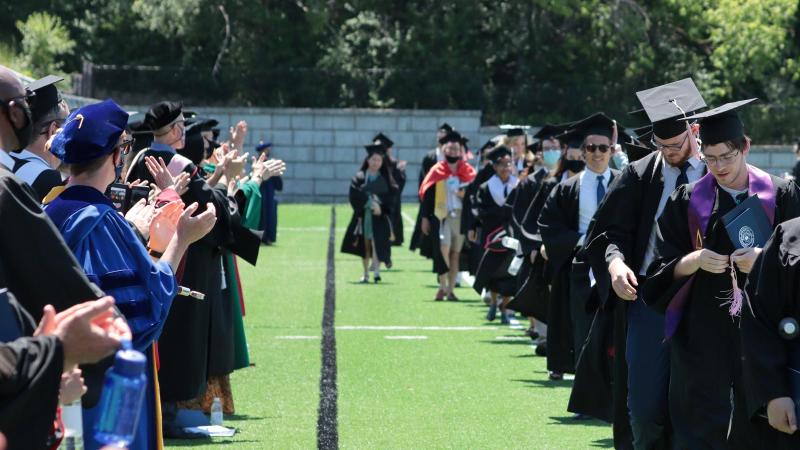Bachelor of Arts
The Bachelor of Arts offers you a curriculum entirely focused on undergraduate students. We offer small classrooms, personal relationships with professors, and a world-class liberal arts education. Develop your writing, perform research, and gain 21st-century skills all rooted in a proud intellectual tradition.
The B.A. lets you choose from 36 majors to build an academic experience that is uniquely yours and that will prepare you to thrive and succeed.
Learn about Bachelor of Arts requirements
Bachelor of Music
The B.Mus. degree allows you to focus primarily on music in a professional degree program that is founded upon principles of a liberal arts education.
You can major in performance, music education, theory, or composition. You can also pursue a jazz emphasis in performance or composition. About two thirds of your classes will be in music, including lessons, classes such as music theory and history, and ensembles, while non-music classes will make up the remaining third of your studies. As a result, you will earn a well-rounded education along with the highest quality musical instruction.
Learn about Bachelor of Music requirements
Bachelor of Arts & Bachelor of Music Dual Degree
Immerse yourself in music and at least one other field of study at a very high level. Lawrence offers an innovative combined B.A./B.Mus. program that allows you to earn both degrees in five years.
Nearly half of Conservatory students pursue the dual degree. You’ll take half your classes in the conservatory and half your classes in the college, combining 21st-century musicianship with a challenging and illuminating liberal arts program.
Learn more about the dual degree
Bachelor of Musical Arts
The Bachelor of Musical Arts offers you a musical education that is innovative, adaptable, collaborative and flexible. This intensive four-year program focuses on jazz and contemporary improvisation and empowers you to develop the musical fluency needed for 21st-century musicianship.
The B.M.A. is designed for musicians looking to both master their craft and pursue other passions that spark their curiosity. Immerse yourself in the non-musical coursework of your choosing in the college and connect it to your musical pursuits in the conservatory.



